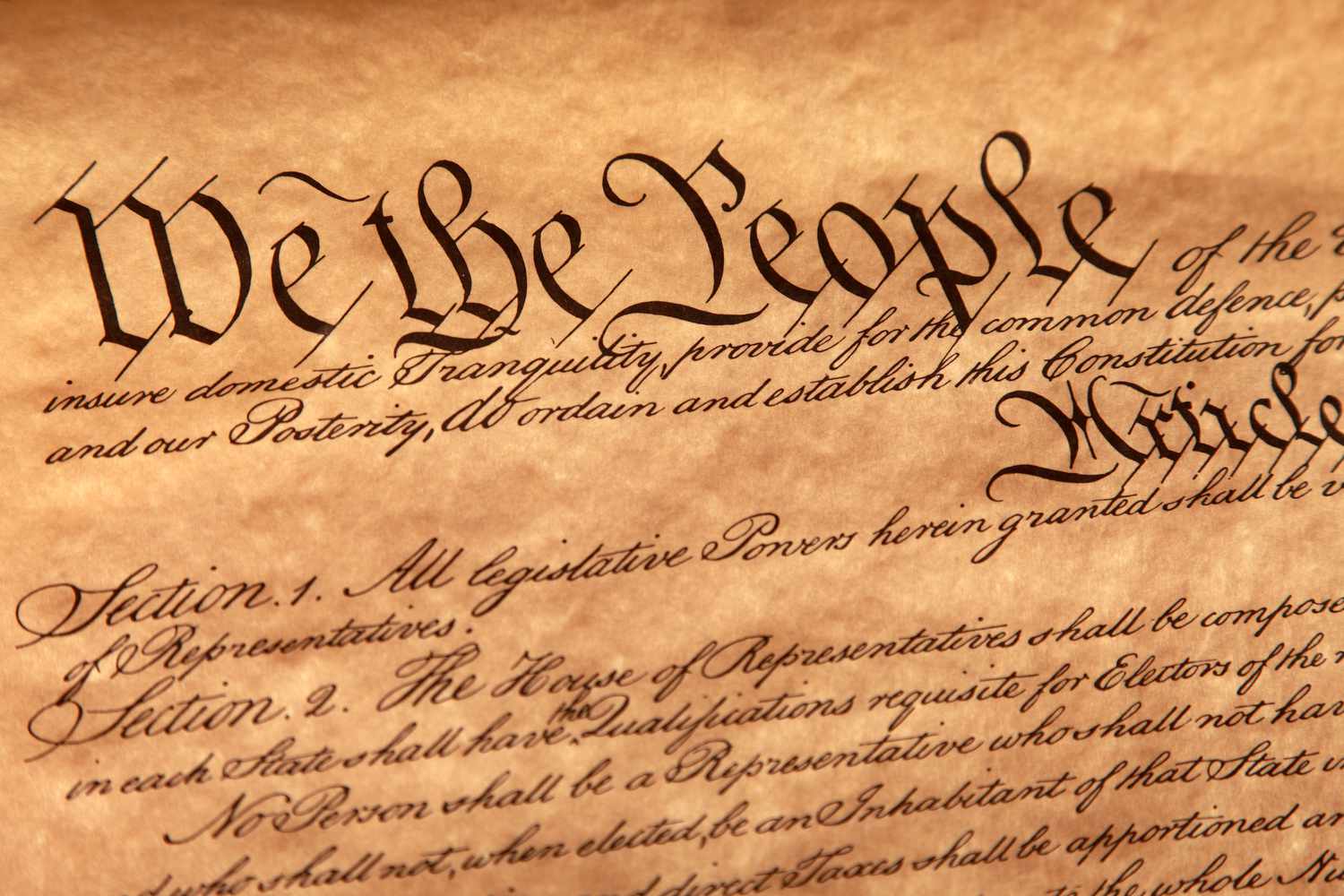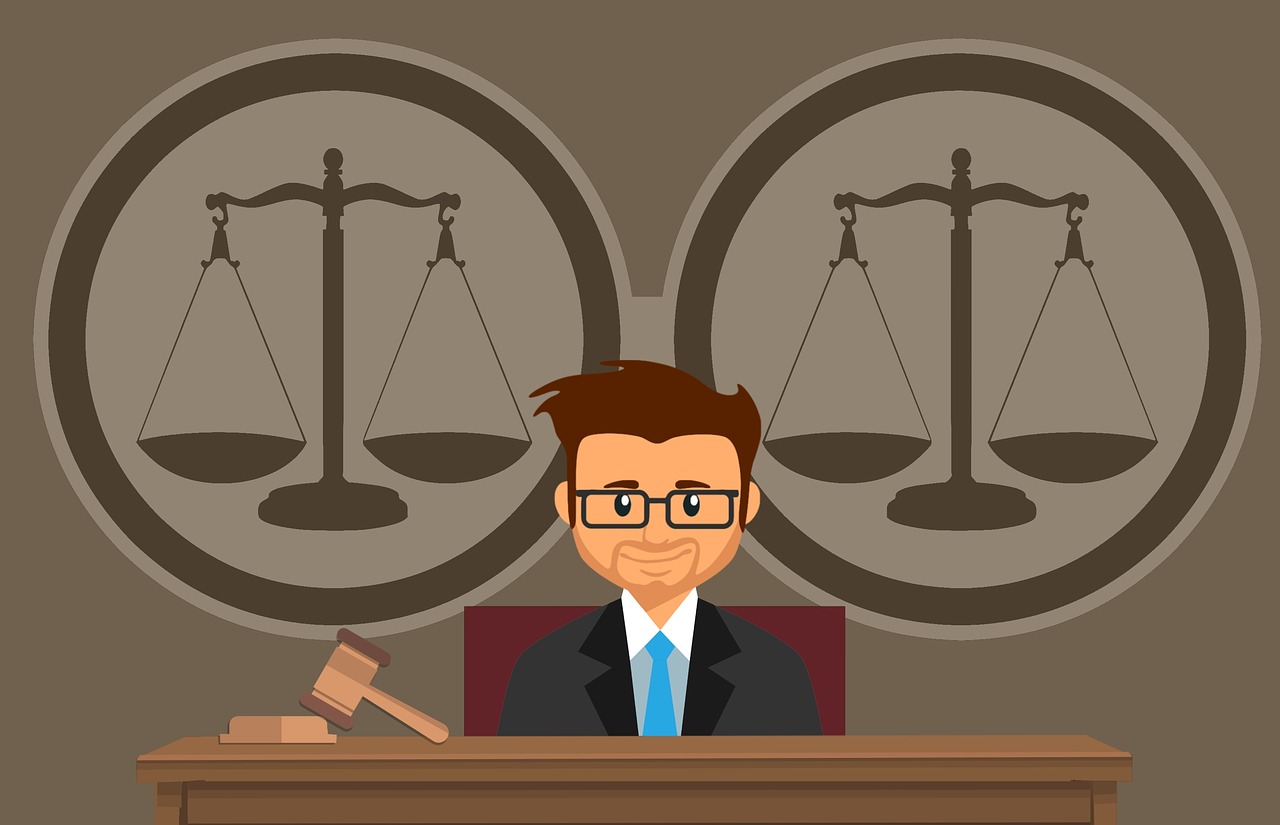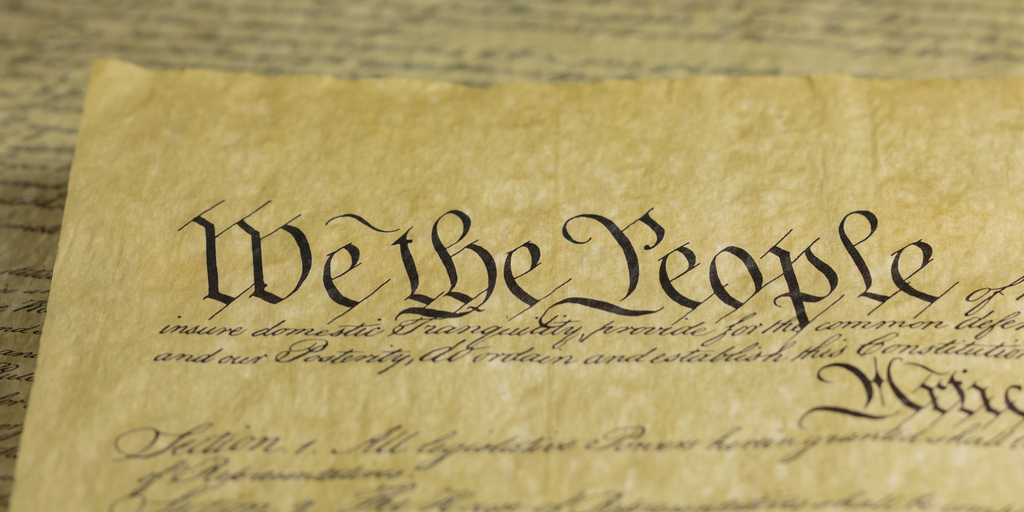Constitutional Law Origins And Modern Development
Discover the fundamentals of Constitutional Law and its role in modern governance. Learn about recent developments and future trends, including the increasing importance of technology, the role of courts, and the intersection of constitutional law and public policy. Gain a deeper understanding of the challenges and opportunities facing this critical area of law.
Author:K. N.Mar 25, 2023119.1K Shares1.7M Views

Constitutional lawis a fundamental area of law that deals with the principles and practices that guide the formation and interpretation of constitutions in different countries.
Constitutions are essential legal documents that establish the framework of government, define the powers and limitations of the branches of government, and guarantee fundamental rights and liberties to citizensand residents. In this article, we will explore the nature and scope of constitutional law, its historical origins, and its significance in modern governance.
The Nature And Scope Of Constitutional Law
Constitutional law is the branch of law that deals with the interpretation and application of constitutions. A constitution is a set of fundamental principles and rules that govern the relationships between the different branches of government, the distribution of power and authority, and the protection of individual rights and liberties.
Constitutional law encompasses a wide range of issues, including the structure of government, the powers and limitations of government officials, the protection of individual rights, and the distribution of resources and benefits.
The Historical Origins Of Constitutional Law
The roots of constitutional law can be traced back to ancient Greece and Rome, where philosophers and scholars developed the concept of constitutionalism. In the modern era, the United States Constitution, drafted in 1787, is widely regarded as one of the most influential and significant constitutional documents in history. The U.S. Constitution established a system of government based on the principles of separation of powers, federalism, and individual rights, and it has served as a model for many other countries around the world.
Significance Of Constitutional Law In Modern Governance
Constitutional law plays a crucial role in modern governance by ensuring that the powers of government are limited, and individual rights are protected. A constitution serves as a check on the power of government officials and establishes a framework for resolving disputes between different branches of government. It also provides a mechanism for citizens to hold their government accountable by providing legal remedies for violations of constitutional rights and liberties.
You can also check out the latest newsand analysis on politics, policy, and the latest happenings in the United Statesat the Washington Independent.
Key Issues In Constitutional Law
Constitutional law encompasses a wide range of issues, including:
- Separation of powers: the allocation of powers and responsibilities between the executive, legislative, and judicial branches of government.
- Federalism: the distribution of power and authority between the national government and state or provincial governments.
- Individual rights: the protection of fundamental rights and liberties, such as freedom of speech, religion, and association.
- Due process: the fair and impartial administration of justice, including the right to a fair trial, and the protection against arbitrary or discriminatory government action.
- Constitutional interpretation: the methods and principles used to interpret and apply constitutional provisions, including originalism, textualism, and living constitutionalism.
Challenges In Constitutional Law
While constitutional law provides the foundation for modern governance, it is not without its challenges. One of the primary challenges facing constitutional law is the tension between individual rights and the needs of the state. For example, in times of national emergency or security threats, the government may be tempted to restrict individual rights and liberties to protect the broader interests of the nation. Striking a balance between individual rights and the needs of the state is a complex and ongoing challenge in constitutional law.
Another challenge facing constitutional law is the issue of constitutional interpretation. Different judges and legal scholars may interpret constitutional provisions in different ways, leading to divergent legal opinions and potentially conflicting legal outcomes. Resolving these disputes and maintaining consistency in constitutional interpretation is an ongoing challenge in constitutional law.
Recent Developments In Constitutional Law
Constitutional law is a dynamic field that is constantly evolving in response to changing social, political, and legal contexts. In recent years, there have been several significant developments in constitutional law, including:
- Same-sex marriage: In 2015, the U.S. Supreme Court legalized same-sex marriage nationwide, overturning state-level bans on the practice. This landmark decision was based on the principle of equal protection under the law, as enshrined in the U.S. Constitution.
- Privacy rights: In 2018, the Indian Supreme Court ruled that privacy is a fundamental right protected by the Indian Constitution. This decision has significant implications for the government's use of surveillance and data collection technologies, as well as for individual rights to privacy in India.
- Brexit:The United Kingdom's decision to leave the European Union in 2016 raised significant constitutional questions regarding the relationship between the UK and the EU, as well as the distribution of powers and authority within the UK government.
Future Trends In Constitutional Law
Looking ahead, there are several key trends that are likely to shape the future of constitutional law. One of the most significant trends is the increasing globalization of constitutional law. As countries become more interconnected and interdependent, constitutional law is likely to become more uniform and standardized across different jurisdictions. This trend is reflected in the growing popularity of international human rights law and the increasing influence of international courts and tribunals in shaping national constitutional law.
Another important trend in constitutional law is the growing importance of technology and digital rights. As the world becomes more digital, the protection of individual privacy and the regulation of data collection and surveillance are becoming critical constitutional issues. In addition, the use of artificial intelligence, autonomous vehicles, and other emerging technologies is likely to raise new constitutional challenges regarding the distribution of power and responsibility between humans and machines.
Finally, the increasing polarization of politics and the erosion of democratic norms and institutions is likely to pose significant challenges to constitutional law in the years ahead.
As political leaders and institutions become more authoritarian and less responsive to the needs and desires of citizens, constitutional law will play a critical role in protecting individual rights and holding government officials accountable.
The Role Of Courts In Constitutional Law
One of the key features of constitutional law is the role of courts in interpreting and applying constitutional principles. Courts play a critical role in ensuring that constitutional rights are protected, and that government officials and institutions are held accountable to the rule of law.
The decisions of courts, particularly high courts and supreme courts, have far-reaching implications for constitutional law and for the functioning of democratic governance.
The Intersection Of Constitutional Law And Public Policy
Constitutional law and public policy are intimately connected, as constitutional principles shape and inform public policy decisions. Understanding the intersection between constitutional law and public policy is essential for policymakers, advocates, and citizens alike.
By analyzing the relationship between constitutional law and public policy, we can work to create policies and lawsthat are grounded in constitutional principles and that promote the public good.
People Also Ask
What Is Constitutional Law In PNG?
Constitutional law in PNG refers to the body of law that sets out the fundamental principles and rules governing the structure, powers, and functions of the government in Papua New Guinea. This includes the Constitution of Papua New Guinea, which was adopted in 1975 and provides the framework for the country's political and legal system.
What Are The Constitutional Law Principles?
The constitutional law principles generally refer to the fundamental legal principles that underpin the governance of a country under its constitution. These principles can include the rule of law, separation of powers, democracy, protection of fundamental rights and freedoms, and the accountability of government officials to the people.
What Is A Synonym For Constitutional Law?
A synonym for constitutional law is "fundamental law". This term refers to the legal principles and rules that are enshrined in a country's constitution and serve as the foundation for its governance and legal system.
Conclusion
Constitutional law is a crucial area of law that provides the framework for modern governance. It establishes the principles and rules that govern the relationships between different branches of government, protects individual rights and liberties, and ensures that the power of government is limited and accountable.
Understanding the nature and scope of constitutional law is essential for anyone interested in the functioning of modern democracy and the protection of individual rights and freedoms.
Jump to
The Nature And Scope Of Constitutional Law
The Historical Origins Of Constitutional Law
Significance Of Constitutional Law In Modern Governance
Key Issues In Constitutional Law
Challenges In Constitutional Law
Recent Developments In Constitutional Law
Future Trends In Constitutional Law
The Role Of Courts In Constitutional Law
The Intersection Of Constitutional Law And Public Policy
People Also Ask
Conclusion

K. N.
Author
Latest Articles
Popular Articles

